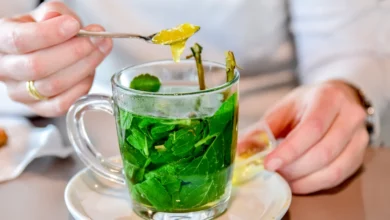3. Turmeric
Drink turmeric with milk or water or apply turmeric honey paste to the boils. Turmeric contains curcumin which gives it antibacterial properties.
4. Onion Juice
Cover the boils with a slice of onion and surgical tape. Onion is a known antiseptic and is famous for its ability to draw out toxins. In the case of boils, the sulfur compounds present in onion will dry the boils from inside and cure them.
5. Apple Cider Vinegar
Dab a piece of cotton with apple cider vinegar on your boils. Apple cider vinegar has antimicrobial properties that help fight the bacteria causing the boils. It also helps balance the pH levels of the skin.
6. Neem Leaf
Grind neem leaves with water into a paste. Apply the paste on the boil and cover with a soft bandage. Neem is well known for its strong antibacterial properties. Boiled neem water is supposedly the best home remedy for rashes and inflammation.
7. Aloe vera
Cut aloe vera leaves and collect the juices to apply on the boils. Apart from having far-reaching skincare properties, aloe vera gel produces a rich calming effect. It helps reduce the itchiness and inflammation around the boils.
8. Betel Leaf And Castor Oil
Soak a betel leaf in warm water until it softens and then apply castor oil on it before using it to cover the boils. Betel leaf is rich in Riboflavin carotene, vitamin C, calcium, and Niacin. Castor oil contains Ricinoleic acid which works against the inflammation.
9. Potato Paste
Peel and grind one potato to a paste. Strain the pulp and use the juice on the boils. Potato has natural antimicrobial compounds. Potatoes can be used to cure multiple infections, especially boils.
10. Black Cumin
Grind 2 tsp black cumin seeds with water. Then apply the paste on the infected area with a clean cloth. Black cumin has antiseptic and antimicrobial properties. It would reduce the swelling and the pain of the infected area.
It is strongly advised that if no improvement is observed, one must consult a specialist within a week.




